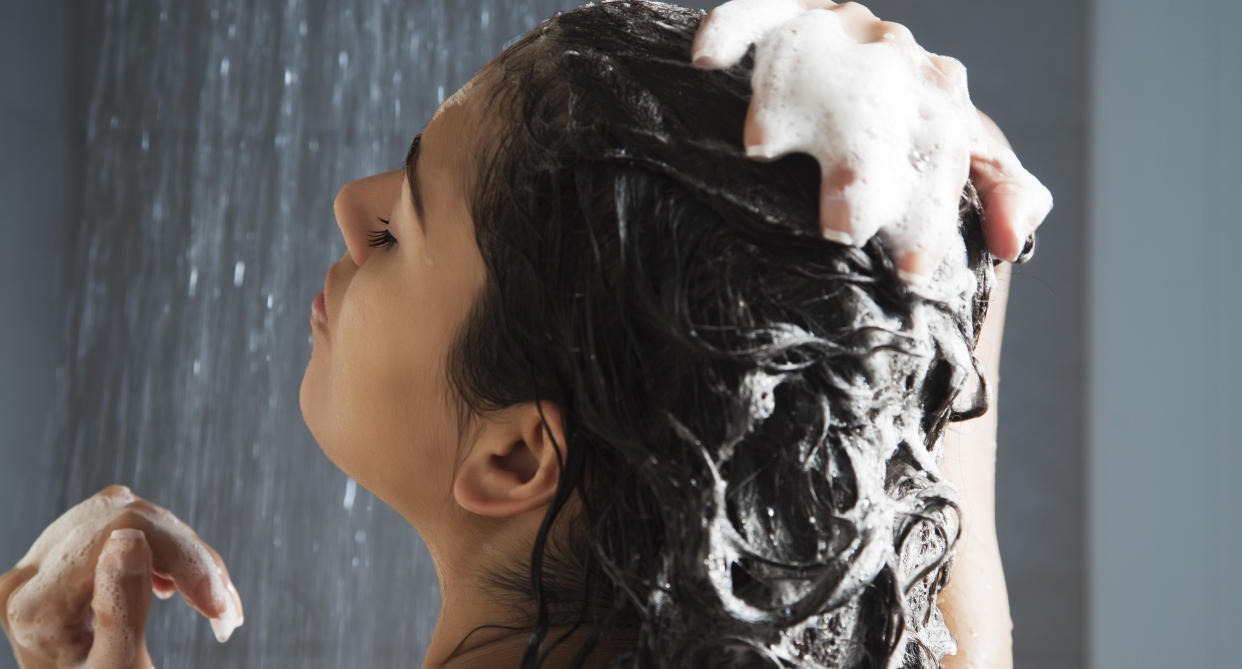Eczema sufferers should only shower 4 times per week, says leading dermatologist

Words: Adrianna Barrionuevo
Over 15 million people in the UK suffer from eczema, according to Allergy UK, and one doctor says that showering habits can affect the condition.
Eczema, a skin condition also known as atopic dermatitis, is an itchy, red rash that can appear anywhere on the body, and while there is no cure, the condition can usually be managed.
Dermatologist Yoon-Soo Cindy Bae of Laser & Skin Surgery Center of New York tells Yahoo Lifestyle that “moisturising is key” and recommends avoiding triggers such as “stress, allergens like pollen, pet dander and mold, harsh detergents, and unhealthy diets.” A more surprising eczema trigger? Overshowering.
“If someone with eczema exercises every day, they should be showering after each workout,” explains Bae. “However, if someone doesn’t work out daily and doesn’t really sweat much, I would recommend keeping showering to a minimum, within reason.”
So how many times a week should someone with eczema shower? “Depending on someone’s lifestyle and these variables, showering only four times a week could help keep eczema under control,” she says. “But it will vary from person to person and what they’re most comfortable with.”
Bae also notes that if you decide to shower daily, opt for warm — not hot — water, and stick to gentle cleansers to avoid drying out your skin even more. “I prefer my eczema patients shower instead of taking a bath, so your skin isn’t just sitting in the water.” However, if a bath is necessary, she recommends limiting your time in the tub to 5-10 minutes. “And although it’s tempting, don’t take bubble baths, because that can really dry skin out.”
Post-shower care is essential too. “After showering, apply a moisturizer such as Cetaphil Pro Restoraderm Gentle Body Moisturizer (£24.49) or Cetaphil Baby Eczema Calming Wash (£28.74) for any little ones who may suffer from eczema,” she says.
But if you experience a flare-up, Bae says to turn to your dermatologist for advice and consider a prescription strength option to layer on before you lotion up post-shower. “When a flare-up occurs, apply topical medicine prescribed by your board-certified dermatologist first, then moisturise the rest of your skin.”
Follow us on Instagram and Facebook for non-stop inspiration delivered fresh to your feed, every day. For Twitter updates, follow @YahooStyleUK.
Read more from Yahoo Style UK:
Seasonal affective disorder: Light boxes and other SAD treatments to beat the winter blues


